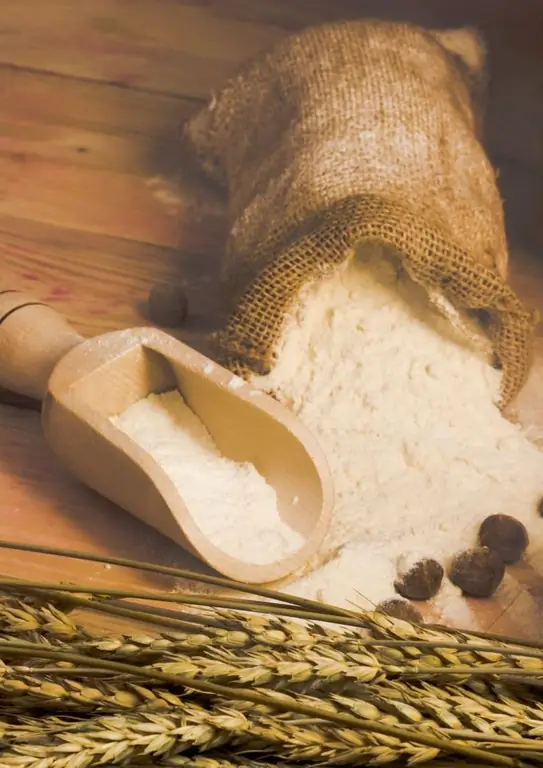- Author Brandon Turner turner@palatabledishes.com.
- Public 2023-12-17 01:37.
- Last modified 2025-01-24 11:11.
Many people like delicious homemade cakes. These are beautiful pies, cookies, cakes and pancakes. But for each of the culinary creations, only a certain type of flour is suitable. Therefore, you need to choose the right flour.

Instructions
Step 1
Purchase premium flour to knead buns, pastries, cakes and pasta dough. This flour is the purest and whitest. Its particles are only 0.1-0.2 mm in size and are smaller than those of other varieties. Despite its whiteness, this flour contains a minimum amount of gluten, B vitamins and minerals, since it is made from the very core of the wheat grain. Uncooked pies baked from it, as a rule, crumble and do not hold their shape.
Step 2
To make confectionery from non-rich dough, take first grade flour. It is richer in phosphorus and calcium than the purest premium flour and is ideal for making any kind of pies and pies. Yeast dough from such flour rises perfectly, it is quite fluffy, and baked goods from it do not stale for a long time.
Step 3
If you want to bake waffles, pasties or pancakes, then take second grade flour. It is this flour that contains the greatest amount of vitamins and microelements, since it is ground from whole wheat grains and contains many useful substances contained in their shell. But the dough made from such flour is less fluffy and does not rise well.
Step 4
When choosing flour for baking, pay attention to the grinding date. Freshly ground flour is not very suitable for making confectionery. It is better to use the one after grinding which has passed at least a month. If more than three months have passed since the flour was ground, sift it through a sieve.
Step 5
To determine the storage conditions for flour, take a small pinch and rub it with your fingers. If it sticks to dry hands and easily rolls into a ball, then you should not buy it, since it is damp. The dough made from such flour will be heavier, and the baked goods will be tough. High-quality, properly stored flour does not leave marks on the fingers and smells like freshly ground grain.






